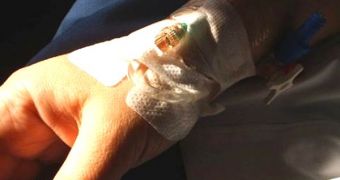Experts with an international research initiative have recently determined that patients in vegetative states, or who are minimally conscious, can still learn new things, even if they lack self-awareness. The report, which appears in the latest online issue of the respected scientific journal Nature Neuroscience, also shows that these people can demonstrate partial consciousness, despite their conditions. With the new results, it will soon become unnecessary for experts to image patients. Rather, they could only apply a simple test to verify their consciousness, ScienceDaily reports.
Scientists from the University of Buenos Aires and the Institute of Cognitive Neurology, in Argentina, and the University of Cambridge, in the United Kingdom, participated in the research. The team used classic Pavlovian conditioning to achieve its conclusions. Before air was blown in patients' faces, a tone played. After some time, the patients began to blink after the tone played, but the air had not yet been blown, which hinted at cued learning. This type of learning, the experts say, requires conscious awareness, as well as an understanding of the timeline in the events (tone before air, air after tone).
“This test will hopefully become a useful, simple tool to test for consciousness without the need for imaging or instructions. Additionally, this research suggests that if the patient shows learning, then they are likely to recover to some degree,” University of Cambridge Wolfson Brain Imaging Unit expert Dr. Tristan Bekinschtein, who has also been the lead author of the new paper, explains. The fact that patients show signs of learning, he adds, is a clear indicator of the fact that they form memories, which means that their cortex is still in shape to perform the most basic functions.
The new paper, entitled “Classical conditioning in the vegetative and minimally conscious state,” appears in the September 20th issue of the journal. In a 2006 study by the Wolfson Brain Imaging Unit Cambridge Impaired Consciousness Group, experts demonstrated via functional Magnetic Resonance Imaging (fMRI) that patients in vegetative and minimally conscious states were in fact conscious. However, they lacked the ability to show constant, voluntary movements.

 14 DAY TRIAL //
14 DAY TRIAL //